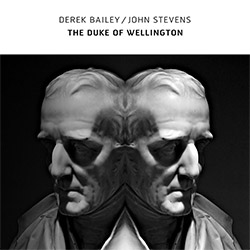
Seminal figures in the evolution of free or nonidiomatic improvisation, guitarist Derek Bailey and percussionist/pocket trumpeter John Stevens are heard in a 1989 London performance vividly captured by Michael Gerzon at The Duke of Wellington, their restless and enthusiastic interplay shifting from angular invention to lyrical reflection in a compelling document of their remarkable rapport.
In Stock
Quantity in Basket: None
Log In to use our Wish List
Shipping Weight: 3.00 units
EU & UK Customers:
Discogs.com can handle your VAT payments
So please order through Discogs
Sample The Album:
Derek Bailey-acoustic guitar, amplified acoustic guitar
John Stevens-percussion, pocket trumpet
Click an artist name above to see in-stock items for that artist.
Label: Confront
Catalog ID: core 52
Squidco Product Code: 36649
Format: CD
Condition: New
Released: 2025
Country: UK
Packaging: Cardboard Gatefold
Recorded at The Duke of Wellington, in London, UK, on March 24th, 1989, by Michael Gerzon.
"For the second time in a matter of weeks, here we have an opportunity to hear more from guitarist Derek Bailey, this time performing with John Stevens. Neither man should need much by way of introduction: both were seminal figures in the world of free improvised music as it took shape in the 1960s and 70s. Thanks to Michael Gurzon's recording, here they are, in 1989, performing together at The Duke of Wellington in London.
The first track, 'I'm Alright Actually', begins with a series of slippery shapes, the noise-elements of Bailey's guitar merging with those of Stevens' percussion in a non-stop stream of invention. The music reaches a point of stasis before moving off into a series of angular shapes which give way to a stream of more slow-moving ideas. There is always a sense of restlessness though, a feeling that, at any moment, things might get more chaotic, which, inevitably, the do. The music ebbs and flows, but the inventiveness and the sense of restless energy is always there. A few seconds of applause have been left in at the end, which really captures the ambience of the venue (the same goes for both the other tracks, too).
The second, 'What's the Time?', begins with more spacious, harmonic-dominated ideas from Bailey, in dialogue with Stevens' 'pocket trumpet'. Almost seven minutes in, the music becomes more dense and agitated. Towards the end it almost comes to rest in another section dominated by harmonics, then tries to build up to a climactic moment before subsiding back into something more reflective.
The third, 'More', starts with some shifting chords from Bailey backed up with some fragmentary interventions from Stevens, after which things quickly become more sustained and fast-moving. About 6 minutes in, the pace drops and we're treated to a strikingly lyrical piece of playing from Bailey.
Anyone interested in improvised music will want to listen to this, not just on account of its undoubted historical value, but because of the music itself. It's both a great listen and a text-book example of how to make up music as you go along."-Dominic Rivron, International Times
"One more newly uncovered recording - and this one is on Bandcamp - captures Bailey in full swing alongside another of his longtime comrades: percussionist and pocket trumpet player John Stevens, founder of the long-running Spontaneous Music Ensemble, and a pillar of the late-60s free improvisation scene in London. The Duke of Wellington, newly issued on Mark Wastell's crucial Confront label, documents a 1989 performance at a modest London pub. Captured by mathematician and audio engineer Michael Gerzon, the recording is intimate and detailed, illuminating the magical connection between these players and the actual sinew involved in their bond. It's paradoxical, perhaps, to covet more and more documentation of musicians whose ethos was so fundamentally focused on the moment. Nevertheless, here's hoping more such gems continue to emerge."-Steve Smith, Night After Night
Artist Biographies
• Show Bio for Derek Bailey "Derek Bailey (29 January 1930 - 25 December 2005) was an English avant-garde guitarist and leading figure in the free improvisation movement. Bailey was born in Sheffield, England. A third-generation musician, he began playing the guitar at the age of ten, initially studying music with his teacher and Sheffield City organist C. H. C. Biltcliffe, an experience that he did not enjoy, and guitar with his uncle George Wing and John Duarte. As an adult he worked as a guitarist and session musician in clubs, radio, dance hall bands, and so on, playing with many performers including Morecambe and Wise, Gracie Fields, Bob Monkhouse and Kathy Kirby, and on television programs such as Opportunity Knocks. Bailey's earliest foray into 'what could be called free improvised music' was in 1953 with two other guitarists in their shared flat in Glasgow. He was also part of a Sheffield-based trio founded in 1963 with Tony Oxley and Gavin Bryars called "Joseph Holbrooke" (named after the composer, whose work they never actually played). Although originally performing relatively "conventional" modal, harmonic jazz this group became increasingly free in direction. Bailey moved to London in 1966, frequenting the Little Theatre Club run by drummer John Stevens. Here he met many other like-minded musicians, such as saxophonist Evan Parker, trumpet player Kenny Wheeler and double bass player Dave Holland. These players often collaborated under the umbrella name of the Spontaneous Music Ensemble, recording the seminal album Karyobin for Island Records in 1968. In this year Bailey also formed the Music Improvisation Company with Parker, percussionist Jamie Muir and Hugh Davies on homemade electronics, a project that continued until 1971. He was also a member of the Jazz Composer's Orchestra and Iskra 1903, a trio with double-bass player Barry Guy and tromboneist Paul Rutherford that was named after a newspaper published by the Russian revolutionary Vladimir Lenin. In 1970, Bailey founded the record label Incus with Tony Oxley, Evan Parker and Michael Walters. It proved influential as the first musician-owned independent label in the UK. Oxley and Walters left early on; Parker and Bailey continued as co-directors until the mid-1980s, when friction between the men led to Parker's departure. Bailey continued the label with his partner Karen Brookman until his death in 2005[citation needed]. Along with a number of other musicians, Bailey was a co-founder of Musics magazine in 1975. This was described as "an impromental experivisation arts magazine" and circulated through a network of like-minded record shops, arguably becoming one of the most significant jazz publications of the second half of the 1970s, and instrumental in the foundation of the London Musicians Collective. 1976 saw Bailey instigate Company, an ever-changing collection of like-minded improvisors, which at various times has included Anthony Braxton, Tristan Honsinger, Misha Mengelberg, Lol Coxhill, Fred Frith, Steve Beresford, Steve Lacy, Johnny Dyani, Leo Smith, Han Bennink, Eugene Chadbourne, Henry Kaiser, John Zorn, Buckethead and many others. Company Week, an annual week-long free improvisational festival organised by Bailey, ran until 1994. In 1980, he wrote the book Improvisation: Its Nature and Practice. This was adapted by UK's Channel 4 into a four-part TV series in the early '90s, edited and narrated by Bailey. Bailey died in London on Christmas Day, 2005. He had been suffering from motor neurone disease." ^ Hide Bio for Derek Bailey • Show Bio for John Stevens "John William Stevens (10 June 1940 in Brentford, Middlesex - 13 September 1994 in Ealing, west London) was an English drummer. He was one of the most significant figures in early free improvisation, and a founding member of the Spontaneous Music Ensemble (SME). Stevens was born in Brentford, the son of a tap dancer. He used to listen to jazz as a child, but was initially more interested in drawing and painting (media through which he also expressed himself throughout his life). He studied at the Ealing Art College and then started work in a design studio, but left at 19 to join the Royal Air Force. He studied the drums at the Royal Air Force School of Music in Uxbridge, and while there met Trevor Watts and Paul Rutherford, two musicians who became close collaborators. In the mid-1960s Stevens began to play in London jazz groups alongside musicians like Tubby Hayes and Ronnie Scott, and in 1965 he fronted a septet. Influenced by the free jazz he was hearing coming out of the United States by players like Ornette Coleman and Albert Ayler, his style began to move away from fairly traditional be-bop to something more experimental. In 1966 SME was formed with Watts and Rutherford and the group moved into the Little Theatre Club at Garrick Yard, St. Martin's Lane, London to develop their new music. In 1967 their first album, Challenge, was released. Stevens then became interested in the music of Anton Webern, and the SME began to play generally very quiet music. Stevens also became interested in non-Western musics. The SME went on to make a large number of records with an ever changing line-up and an ever changing number of members, but Stevens was always there, at the centre of the group's activity. He also played in a number of other groups, drumming in Watts' group Amalgam and later forming bands like Freebop and Fast Colour, for example, but the SME remained at the centre of his activities. In the latter part of 1967 Evan Parker joined the SME and worked closely with Stevens in the group, eventually becoming one of the longest standing members. He later summed up Stevens' approach to improvising in two basic maxims: if you can't hear another musician, then you're too loud; and there is no point in group improvisation if what you are playing doesn't relate to what other members of the group are playing. Stevens also devised a number of basic starting points for improvisation. These were not "compositions" as such, but rather a means of getting improvisational activity started, which could then go off in any direction. One of these was the so-called "Click Piece" which essentially asked for each player to repeatedly play a note as short as possible. Stevens played alongside a large number of prominent free improvisors in the SME, including Derek Bailey, Peter Kowald, Julie Tippetts and Robert Calvert, but from the mid-1970s, the make-up of the SME began to settle down to a regular group of Stevens, Nigel Coombes playing violin, and Roger Smith playing guitar. During the mid-1970s Stevens played regularly with guitarist and songwriter John Martyn as part of a trio that included bassist Danny Thompson. This line up can be heard on Martyn's 1976 recording Live at Leeds. From 1983 Stevens was involved with Community Music (CM), an organisation through which he took his form of music making to youth clubs, mental health institutions and other unusual places. Notes taken during these sessions were later turned into a book for the Open University called Search and Reflect (1985). In the late 70s and early 80s John was a regular performer at the Bracknell Jazz Festival. Aside from SME, Stevens also ran or helped to organise groups that were more jazz or jazz-rock based, such as Splinters, the John Stevens Dance Orchestra, Away, Freebop, Folkus, Fast Colour, PRS, and the John Stevens Quintet and Quartet. He also contributed significantly to Trevor Watts' group Amalgam and Frode Gjerstad's Detail, as well as collaborating with Bobby Bradford on several occasions. The SME continued to play, the last time being in 1994 with a group including John Butcher. Stevens died later that year." ^ Hide Bio for John Stevens
9/10/2025
Have a better biography or biography source? Please Contact Us so that we can update this biography.
9/10/2025
Have a better biography or biography source? Please Contact Us so that we can update this biography.
Track Listing:
1. I'm Alright Actually 21:46
2. What's The Time? 20:30
3. More 9:50
Improvised Music
Free Improvisation
London & UK Improv & Related Scenes
Guitarists, &c.
Percussion & Drums
Duo Recordings
Bailey, Derek
Staff Picks & Recommended Items
New in Improvised Music
Recent Releases and Best Sellers
Search for other titles on the label:
Confront.


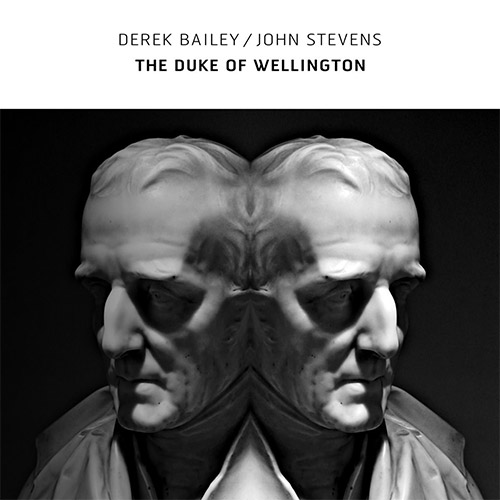
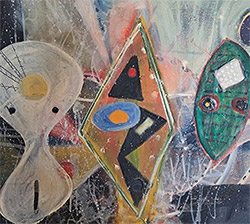
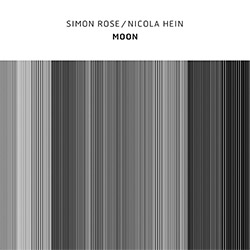


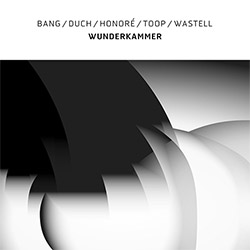
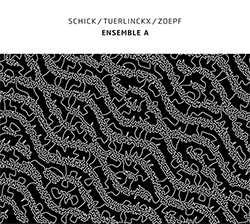

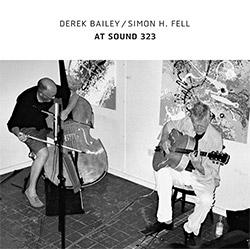
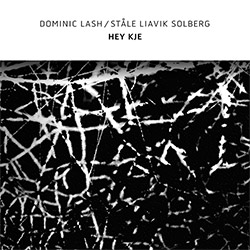
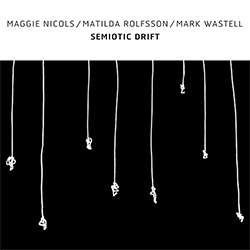



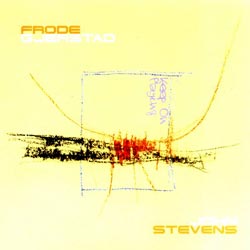
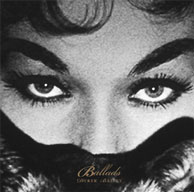


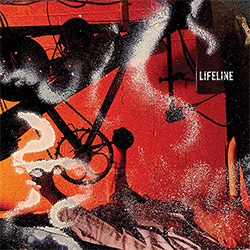

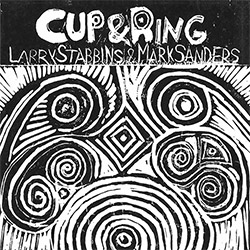


![Mitchener, Elaine: Solo Throat [VINYL]](https://www.teuthida.com/productImages/misc4/34805.jpg)



![Parker, Evan / Bill Nace: Branches (Live at Cafe OTO)[VINYL]](https://www.teuthida.com/productImages/misc4/36399.jpg)
![Ambarchi, Oren / Johan Berthling / Andreas Werliin: Ghosted III [VINYL]](https://www.teuthida.com/productImages/misc4/36542.jpg)

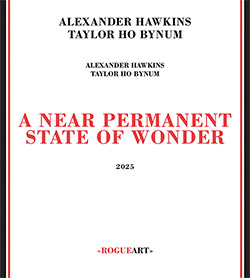
![Putman, Matthew / Hill Greene / Francisco Mela: Believe That Was Me [VINYL]](https://www.teuthida.com/productImages/misc4/36411.jpg)

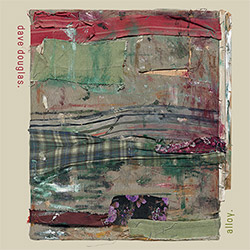


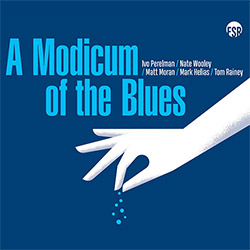


![Extraordinary Popular Delusions (Mars Williams / Jim Baker / Ed Wilkerson / Brian Sandstrom / Steve Hunt): The Last Quintet [2 CDs]](https://www.teuthida.com/productImages/misc4/36629.jpg)


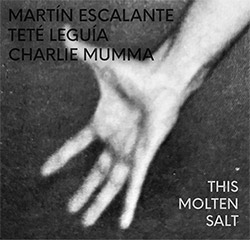
![Halat, Marcin / Maciej Garbowski: The Dialogues [2 CDs]](https://www.teuthida.com/productImages/misc4/36644.jpg)

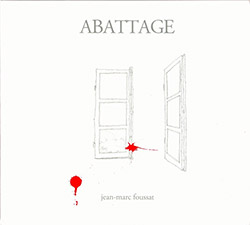

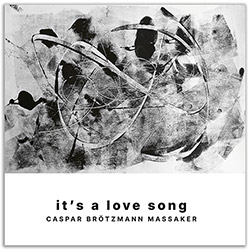
![Yoshida, Tatsuya / Martin Escalante: The Sound of Raspberry [VINYL]](https://www.teuthida.com/productImages/misc4/36634.jpg)
![Chadbourne, Eugene / Jair-Rohm Parker Wells : Fed Up With Bass [2 CDs]](https://www.teuthida.com/productImages/misc4/36656.jpg)

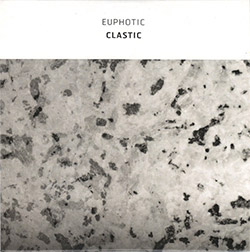

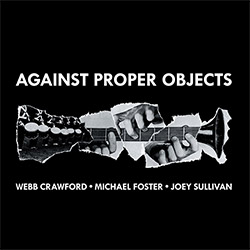



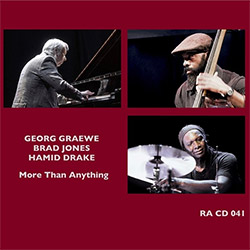

![A Magic Whistle: The Solar Cell [VINYL]](https://www.teuthida.com/productImages/misc4/36658.jpg)

![McGee, Hal: Columbus Expedition [Cassette w/ Download]](https://www.teuthida.com/productImages/misc4/36650.jpg)

![Jaeger, Kassel: Fernweh [VINYL 2 LPs]](https://www.teuthida.com/productImages/misc4/36541.jpg)





![+DOG+: The Light Of Our Lives [2 CDs]](https://www.teuthida.com/productImages/misc4/36009.jpg)


![Eternities: Rides Again [CASSETTE]](https://www.teuthida.com/productImages/misc4/36247.jpg)

![Lopez, Francisco: Untitled (2021-2022) [2 CDs]](https://www.teuthida.com/productImages/misc4/36438.jpg)






![Money : Money 2 [2 CDs]](https://www.teuthida.com/productImages/misc4/35894.jpg)






![Musicworks Magazine: #151 Summer 25 [MAGAZINE + CD]](https://www.teuthida.com/productImages/misc4/36559.jpg)

![Brown, Dan / Dan Reynolds: Live At The Grange Hall [unauthorized][CASSETTE]](https://www.teuthida.com/productImages/misc4/36245.jpg)








![Palestine, Charlemagne / Seppe Gebruers: Beyondddddd The Notessssss [VINYL]](https://www.teuthida.com/productImages/misc4/36206.jpg)
![Palestine, Charlemagne / Seppe Gebruers: Beyondddddd The Notessssss [NEON GREEN VINYL]](https://www.teuthida.com/productImages/misc4/36207.jpg)

![Laubrock, Ingrid: Purposing The Air [2 CDs]](https://www.teuthida.com/productImages/misc4/35639.jpg)

![Yoko, Ono / The Great Learning Orchestra: Selected Recordings From Grapefruit [2 CDs]](https://www.teuthida.com/productImages/misc4/35841.jpg)









![Zorn, John / JACK Quartet: The Complete String Quartets [2 CDs]](https://www.teuthida.com/productImages/misc4/35609.jpg)


![Koenjihyakkei: Live at Club Goodman [2 CDs]](https://www.teuthida.com/productImages/misc4/36111.jpg)

![Sorry For Laughing (G. Whitlow / M. Bates / Dave-Id / E. Ka-Spel): Rain Flowers [2 CDS]](https://www.teuthida.com/productImages/misc4/35985.jpg)

![Rolando, Tommaso / Andy Moor : Biscotti [CASSETTE w/ DOWNLOADS]](https://www.teuthida.com/productImages/misc4/36106.jpg)


![Electric Bird Noise / Derek Roddy: 8-10-22 [CD EP]](https://www.teuthida.com/productImages/misc4/35970.jpg)








![Elephant9 : Mythical River [VINYL]](https://www.teuthida.com/productImages/misc4/34624.jpg)



![Elephant9 with Terje Rypdal: Catching Fire [VINYL 2 LPs]](https://www.teuthida.com/productImages/misc4/35355.jpg)
![Deerlady (Obomsawin, Mali / Magdalena Abrego): Greatest Hits [VINYL]](https://www.teuthida.com/productImages/misc4/34876.jpg)





![Coley, Byron: Dating Tips for Touring Bands [VINYL]](https://www.teuthida.com/productImages/misc4/17906.jpg)

![Lost Kisses: My Life is Sad & Funny [DVD]](https://www.teuthida.com/productImages/misc4/lostKissesDVD.jpg)